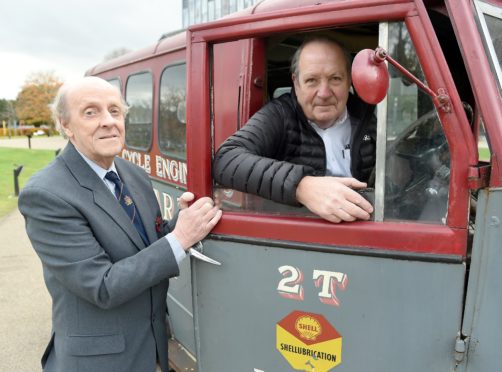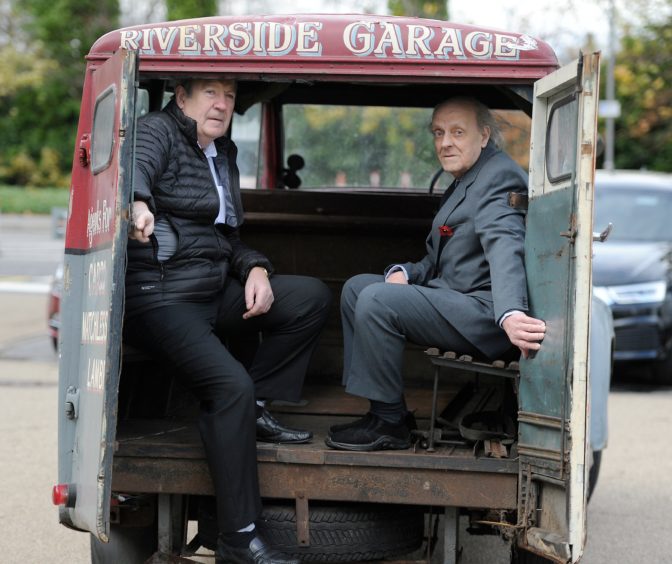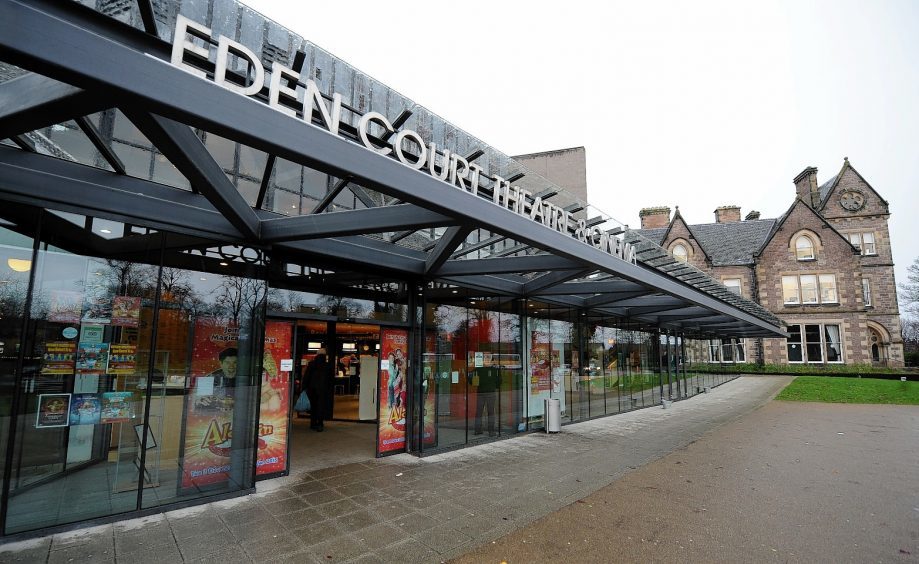They brought a touch of Hollywood glamour to the towns and villages of the Highlands for decades.
And yesterday, the Men of the Wee Cinema were reunited to reminisce over their part in its lasting legacy across the north.
>> Keep up to date with the latest news with The P&J newsletter
The Highlands and Islands Film Guild was set up at the end of World War Two giving many Highlanders their first experience of seeing the world on the big screen.
The operators, known as the ‘Men of the Wee Cinema’, transported the big screen to far-flung communities from 1946 until 1971. Following the introduction of television and the declining number of audience members, the publicly funded service folded.
Billy Williamson, 80, from Shetland, operated the scheme in the islands for 12 years, from 1956 until 1968.
During the reunion at Eden Court Theatre he spoke of how the harsh winters of that era left the men battling the elements to ensure the show carried on.
He said: “We used to get a lot of snow at that time; the winters were really hard going. It was terrible but you felt you had to go if you absolutely could. Sometimes really, it wasn’t a very good idea to take a vehicle on the road at all. If the road was blocked that was okay because then you could with a clear conscience just not go but when the snow plough came out, sometimes it only made matters worse but you felt you had to go.
“It’s nice when they come and say that they do remember and they always seem to remember the fond memories from it so that’s good.”
Attendees were also given the opportunity to see an original Trojan van used by operator Victor Gall from 1954 in Lochaber. Mr Gall worked in the Guild from the late 1940s until its closure in 1971 after serving time in the Army.
The men came together in Inverness yesterday to mark the end of the three-year University of Glasgow-led project titled ‘The Major Minor Cinema: Highlands and Islands Film Guild 1946-71’; which collected people’s memories.
Dr Ian Goode, a lecturer in film and television studies at the University of Glasgow said: “The Wee Cinema is still widely remembered across the country but up until our project it has remained a mostly unwritten part of Scottish and British cinema history.
“It feels right that we share our initial findings firstly with the unsung travelling operators of the Wee Cinema. These men delivered a valuable service to local communities in spaces such as school or village halls in all-weather to offer a unique cinema experience at that time. The journeys that were made by all concerned are a feature of how the Film Guild is remembered.”


